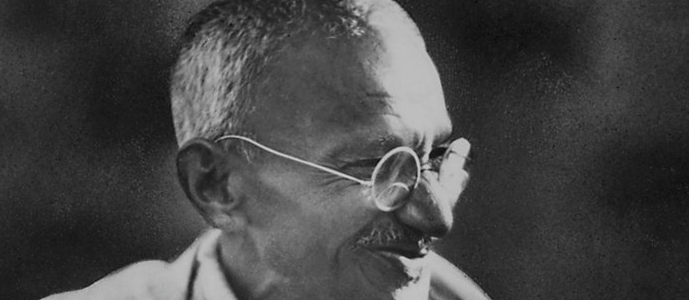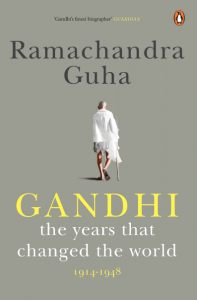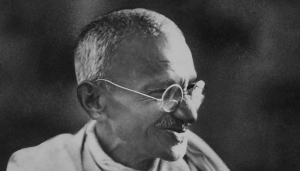
Gandhi lived the great 20th century life



Ramachandra Guha tells the epic story of Gandhi’s life and how he changed the world with his arguments and example.
A deeply affecting biography of Mohandas Gandhi, the lawyer who sailed from India to South Africa to advance his career, and returned to his homeland to become the Mahatma.
Guha charts the journey of Gandhi in his mid-forties when in 1915, he returned to India from South Africa until his assassination by Nathuram Ghodse, a Hindu militant in 1948, and devoted himself both to undermining the largest empire in human history and to challenging the world’s most anti-egalitarian and hierarchical society, at one point he was taking on Britain and India at once.
Guha focuses on two decades of Gandhi’s South African years, that turned self-doubting young presenter into a political organiser, with command over legal arguments and a capacity to create a secular state and unite Christians, Muslims and Hindus in protest.
Guha notes until forties Gandhi may never have spoken to the Indian poor, a single Indian peasant or worker or landlord or moneylender living or working in India. “No 20th century politician or reformer had so intensely immersed himself in the thoughts and actions of ordinary people.”
Guha also highlights how continuous correspondence from all walks of life all over the world, helped Gandhi honed his strenuous ideals of non-violence and truth, expressed them to attract millions and lead India’s 1947 independence from colonial rule.
Guha defines Gandhi’s Indian years by four “callings” to win freedom from British rule; establish peaceful tolerance between religions; abolish untouchability; and teach economic and moral self-reliance. Gandhi launched his great mass mobilisation against British institutions and boycott imported goods in 1920, his 1930 march against the Raj’s tax on salt, and in 1942, “ Quit India”, a final push to get the British out.
Guha reconnoitres Gandhi’s battle with Ambedkar, leader of India’s “untouchables”, who felt Gandhi’s campaigns against untouchability were hollow unless the accompanied by abolition of the caste system itself, and recognition that untouchables must represent their own interests.
Guha also throw light into the most notorious experiment, which caused breaks with some of his followers, involved, at the end of his life, sleeping beside his teenaged grand-niece to test his conquest of sexual desire. Unpurged desire, he believed was responsible for the inter-religious violence engulfing India in the mid 1940s.
An important conviction of Gandhi’s was that freedom for societies such as India meant the liberty not to copy the west. “God forbid that India should ever take to industrialisation after the manner of the West”, Gandhi wrote 90 years ago, if it did, “It would strip the world bare like locusts”.
Guha rediscovers the man who said “Formerly, men were made slaves under physical compulsion. Now they are enslaved by temptation of money and of the luxuries that money can buy.”
Gandhi: The Years that Changed the World, 1914-1948 by Ramachandra Guha, Allen Lane £30/ Knopf $40 1,152 pages
